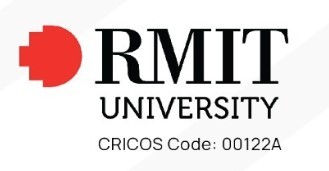
Master of Engineering (Electrical and Electronic Engineering)


Overview
Duration
FULL-TIME 2 YEARS
FULL-TIME 2 YEARS
Scholarship
YES
YES
Fee
AU$44,160
AU$44,160
Intake
FEBRUARY, JULY
FEBRUARY, JULY
Overview
- Expand your expertise and advance your career with cutting-edge skills in electrical and electronic engineering.
- This degree will equip you to work at the cutting-edge of developments in:
- electrical energy generation and distribution
- automation
- control
- instrumentation
- computing technologies
- electronic circuit design and fabrication
- microsystem and information technology
- communication and network engineering
Inquire Now
Career
- Exciting developments in this field offer excellent career opportunities. These developments include advancements in energy generation, distribution, automation and control, as well as electronic instrumentation, devices, sensors and telecommunications technologies.
- In the private sector, graduates work in the design, manufacture, and supply of engineering devices, systems, and services. They work as technical experts, technical or business managers, or executive officers. You could start up your own business in local and global markets or undertake higher studies by research.
- In the public sector, graduates develop essential services for the community in telecommunications, networks, energy, transportation, security, defence, health, education, emergency services and environmental protection.
- Our graduates have gone onto work for companies such as Telstra, Optus, iiNET, Huawei, DJI, Hikvision, State Grid, Dahua Technology (China), TSMC (Taiwan) and the Semiconductor Manufacturing Company Limited.
Entry requirement
- To study this course you will need to complete one of the following English proficiency tests:
- IELTS (Academic): minimum overall band of 6.5 (with no individual band below 6.0)
- TOEFL (Internet Based Test - IBT): minimum overall score of 79 (with minimum of 13 in Reading, 12 in Listening, 18 in Speaking and 21 in Writing)
- Pearson Test of English (Academic) (PTE (A)): minimum score of 58 (with no communication band less than 50)
- Cambridge English: Advanced (CAE): minimum of 176 with no less than 169 in any component.
Popular Courses
Start your journey with landmark today!
Find your perfect course
Answer a few questions and
our course matcher will do the rest
Head Office
Level 5, IT Plaza
Kamaladi, Kathmandu
Tel: +977 14542781, 9845566225
E-mail: info@landmarkedu.com
Kamaladi, Kathmandu
Tel: +977 14542781, 9845566225
E-mail: info@landmarkedu.com
Sydney office
Suite 1 Level 1,
46 Macquarie Street,
Parramatta, NSW
Tel: +61 415 122 814
46 Macquarie Street,
Parramatta, NSW
Tel: +61 415 122 814
Branch office
Sahidchowk, Chitwan
Tel: 056-590825
Tel: 056-590825
Mahendrachowk, Biratnagar
Tel: 021-590828
Tel: 021-590828
Level 2, Milanchowk, Butwal, Rupandehi
Tel: 977-71-591694
Tel: 977-71-591694
© Landmark Education. All rights reserved.


